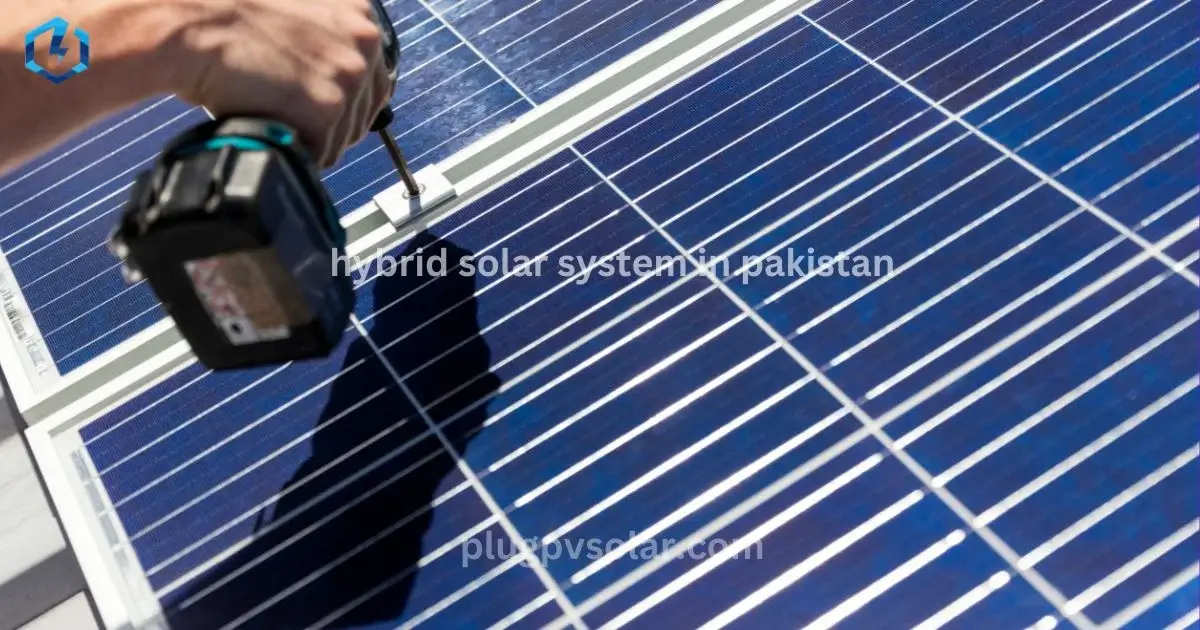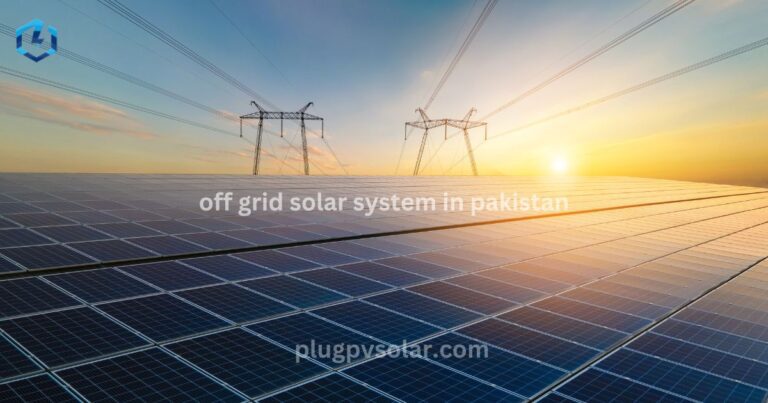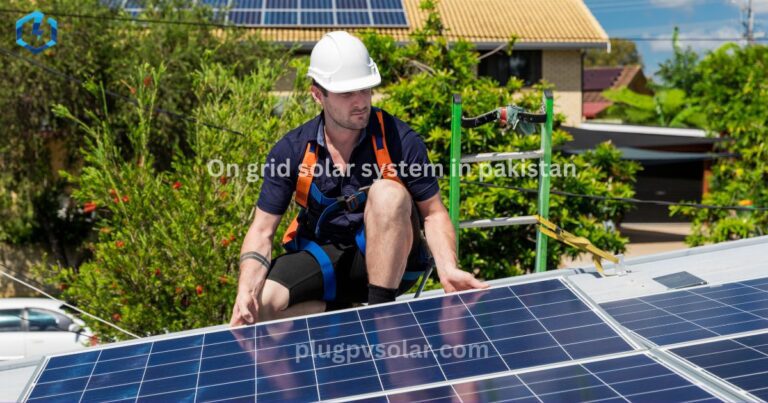
Hybrid Solar System In Pakistan
If you are looking for a reliable and cost-effective way to power your home or business with renewable energy. It would help if you considered installing a hybrid solar system in Pakistan.
A hybrid solar system price in Pakistan combines on-grid and off-grid benefits. Plug PV Hybrid solar, allowing you to use solar power when it is available and store excess energy in batteries for later use. You can also connect to the grid and sell surplus electricity or buy electricity when needed.
A Hybrid Solar System In Pakistan can help you reduce your dependence on fossil fuels, increase your energy security, lower your electricity bills, and contribute to environmental sustainability. It would help if you acknowledged the hybrid solar before investing. Do you need to know how it works? Components of hybrid solar system, how much it costs, and its benefits and disadvantages.
HYBRID SOLAR SYSTEM
The on-grid solar system is cost-effective and allows you to sell the surplus power.
The off-grid solar system permits you continuous electricity during power outages. The cons of both systems encouraged manufacturers to invest in hybrid solar system. The outcome was a system system featuring grid-tie and off-grid features that could be used as both were the result. Due to its crossover properties, the arrangement was given the term Hybrid Solar System.
GO GREEN - GO SOLAR
Call Us For Hybrid Solar System Installation
Empower your life with clean energy and savings.
Plug into a brighter future with PLUG PV solar Company. Join the green revolution today
Contact USComponents Of Hybrid Solar System
Solar Panels:
Any solar system must include solar panels as its primary component. Solar panels grab sunlight and convert it into electricity using the photovoltaic effect.
Hybrid Inverter:
The hybrid inverter is a critical component that distinguishes the hybrid system from regular solar systems. It controls battery charging and discharging and converts the solar panels’ DC electricity into AC power for use in the home.
Batteries:
In a hybrid solar system, batteries store the extra electricity solar panels produce throughout the day. These batteries allow the system to generate power when there is insufficient sunlight, such as at night or on cloudy days.
Charge Controller
The charge controller manages battery charging, guaranteeing optimal battery performance and longevity by limiting overcharging.
Grid Connection
The electric grid remains connected to the hybrid system. When solar power is insufficient, the hybrid system can use the link to take electricity from the grid while returning excess electricity to the grid.
Net Metering System
Consumers can receive credit for any extra electricity they transmit to the grid. When the solar system does not generate enough energy, these credits can be used to balance the grid’s electricity through a net metering system.
DC Disconnect
The DC disconnect safely disconnects the system from the solar panels for maintenance or emergencies.
Distribution Panel for AC
The hybrid inverter generates alternating Current (AC) electricity, which is distributed to electrical loads like home appliances via the AC distribution panel.
Note:
Some hybrid solar systems include a monitoring system that allows customers to track their system’s efficiency and performance. The monitoring system can generate electricity, the condition of their batteries, and other factors.
Electricity Production
Like the other two solar panel systems, the PV cells generate power when daylight energizes their electrons. This produces their current, which the wires then send to the inverter.
Conversion
Inverters convert direct Current to alternating electricity. Commercial and household solar receive 240-volt Alternating Current.
Stored electricity
The ample power is held in the batteries until they are fully charged.
Net Metering
When the batteries are full, net metering sends excess electricity to the grid. This lets consumers get electricity credits and apply them to their bills.
HYBRID SOLAR SYSTEM PRICE IN PAKISTAN
The cost of a hybrid solar system depends on the following factors. These are :
- Size and capacity of the system
- Type and quality of components
- Installation charges
- Net metering charges
- Maintenance costs
MONTHLY ELECTRICITY UNIT SYSTEM CAPACITY
Electricity Units | KW Solar System |
|---|---|
300 to 350 | 3KW Solar System in Pakistan |
500 to 600 | 5KW Solar System in Pakistan |
1100 to 1200 | 10KW Solar System in Pakistan |
1700 to 1800 | 15KW Solar System in Pakistan |
2300 to 2400 | 20KW Solar System in Pakistan |
2800 to 3000 | 25KW Solar System in Pakistan |
3500 to 3600 | 30KW Solar System in Pakistan |
4000 to 4200 | 35KW Solar System in Pakistan |

